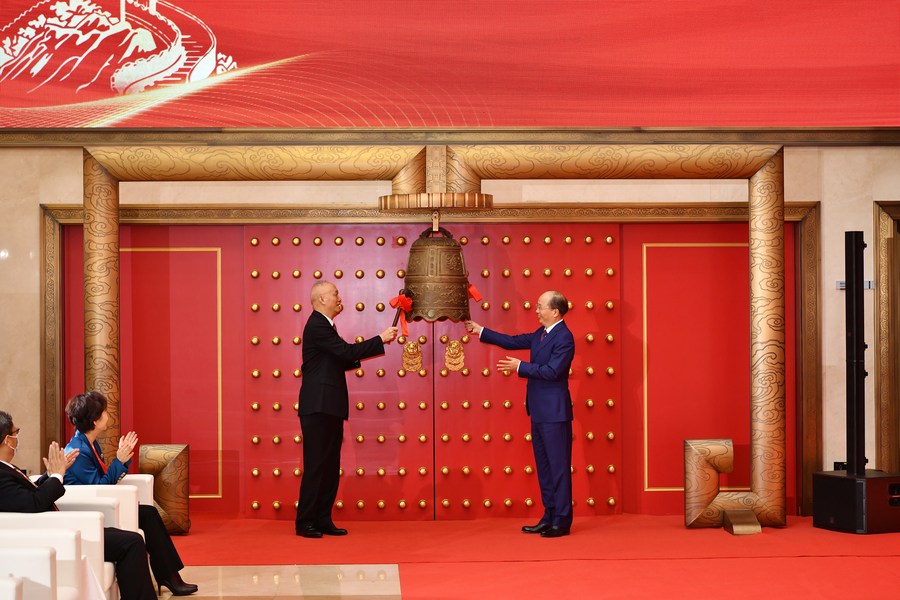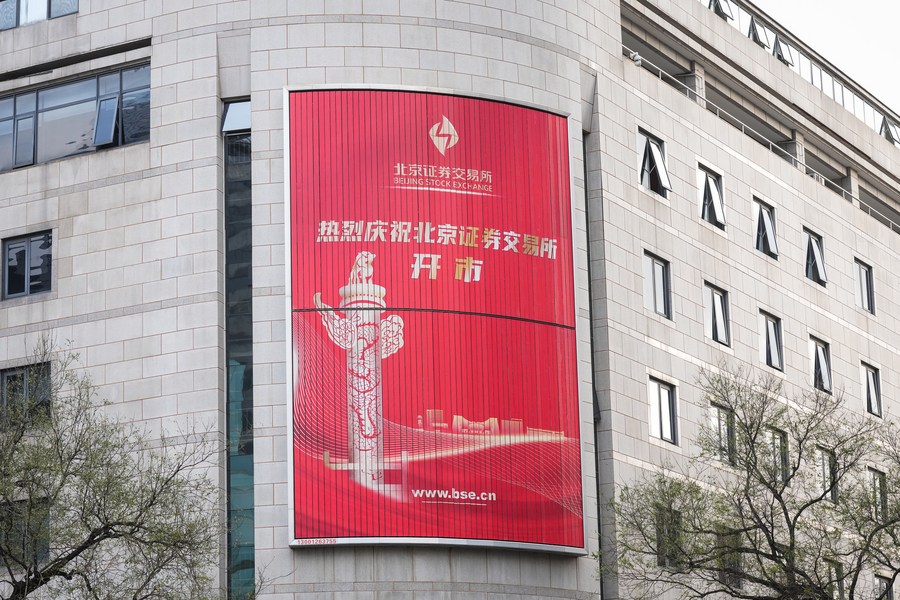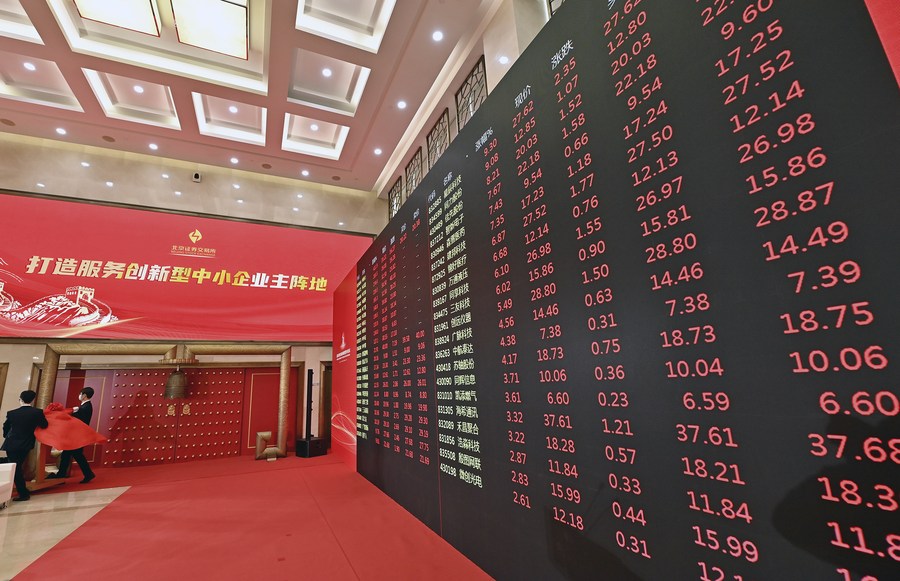Beijing Stock Exchange starts trading, unleashing power of small for Chinese economy
-- Yi Huiman, chairman of the China Securities Regulatory Commission, hailed the launch of BSE as "another landmark in China's capital market reform and development."
-- The first batch of 81 companies debuting on Monday are top performers in their respective sectors, boasting sound business operations and great potential for growth.
-- The BSE is more inclusive for SMEs with lower listing thresholds, diverse evaluation standards and a shorter approval time.
BEIJING, Nov. 15 (Xinhua) -- The newly-established Beijing Stock Exchange (BSE) started trading Monday, marking a key step in China's efforts to deepen capital market reform and support small businesses.
At the launching ceremony, Yi Huiman, chairman of the China Securities Regulatory Commission, hailed the launch of BSE as "another landmark in China's capital market reform and development."
The launch came only two months after an announcement of the plan for a new stock exchange, in addition to the two existing bourses on the Chinese mainland -- in Shanghai and Shenzhen respectively.

Cai Qi (L), a member of the Political Bureau of the Communist Party of China (CPC) Central Committee and secretary of the Beijing Municipal Committee of the CPC, and Yi Huiman, chairman of the China Securities Regulatory Commission, attend the opening ceremony of the Beijing Stock Exchange, in Beijing, capital of China, on Nov. 15, 2021. (Xinhua/Li Xin)
The first batch of 81 companies debuted on Monday, of which 10 were newly approved and 71 were transferred from the selected tier of China's National Equities Exchange and Quotations, also known as the "new third board."
As of 10:20 a.m., shares of all the 10 newly-listed companies had triggered temporary suspension twice as their prices jumped over 60 percent. These shares continued rallying after trading resumed, with the highest surging by over 500 percent at some point.
The stock exchange doesn't limit the price change of the newly-listed companies on the first trading day, but trading will be suspended for 10 minutes when stock prices fluctuate by over 30 percent and over 60 percent.
All 81 firms are top performers in their respective sectors, boasting sound business operations and great potential for growth, said Li Xudong, managing director of China Securities.
Li added that 87 percent of these firms are from fields such as advanced manufacturing, high-tech service and strategic emerging industries, with their average spending on research and development (R&D) topping 25.36 million yuan (about 3.97 million U.S. dollars).

Photo taken on Nov. 15, 2021 shows an exterior view of the office building of the Beijing Stock Exchange, in Beijing, capital of China. (Xinhua/Peng Ziyang)
Over 95 percent of China's enterprises are small and medium-sized enterprises (SMEs). These small businesses are major job creators in the country and an important part of its real economy but have long suffered from insufficient financing.
"Setting up the BSE is of vital importance in creating a multi-level capital market, improving financial support for SMEs, as well as promoting innovation-driven development and economic transformation and upgrading," Yi said.
Facing headwinds from the COVID-19 pandemic and global economic uncertainties, China has remained committed to pursuing high-quality development and economic structural reform, eyeing to ignite the country's endogenous growth momentum.
A diversified economic ecosystem, of which dynamic SMEs are an integral part, underpins the country's economic resilience, analysts said.
China has long stressed the role of SMEs in promoting innovation-driven development, saying that small businesses can do great things.
To help SMEs through difficulties, China has implemented various policies such as deferring loan and interest payment, cutting taxes and fees, and offering low-interest lending.

Photo taken on Nov. 15, 2021 shows a scene at the opening ceremony of the Beijing Stock Exchange, in Beijing, capital of China. (Xinhua/Li Xin)
The new stock exchange is more inclusive for SMEs with lower listing thresholds, diverse evaluation standards, and a shorter approval time.
The BSE adopts the registration-based initial public offering system, in line with the Nasdaq-style sci-tech innovation board, also known as the STAR market on the Shanghai Stock Exchange, and the tech-heavy ChiNext market on the Shenzhen Stock Exchange.
Shares on the BSE also enjoy more market flexibility. Stock prices could rise or fall by up to 30 percent after the first trading day, compared with the 20-percent cap on STAR and ChiNext markets, and the 10-percent limit on the main boards of the Shanghai and Shenzhen stock exchanges.
Net profits of most Chinese SMEs range from 15 million to 50 million yuan, making it hard for them to meet the requirements of STAR and ChiNext boards in the short term, said Wang Zuowei with Zhongtai Securities.
Financial constraints used to hinder the development of Beijing Henghe Information &Technology Co., Ltd., a BSE-listed company specializing in petrochemicals-related environmental protection technology. The company's chairman Li Yujian said he was "thrilled" at the launch of the BSE.
"With the new stock exchange, innovative SMEs will enjoy much greater support from the capital market," said Li. "We can march ahead in big strides now."
Photos
Related Stories
Copyright © 2021 People's Daily Online. All Rights Reserved.










